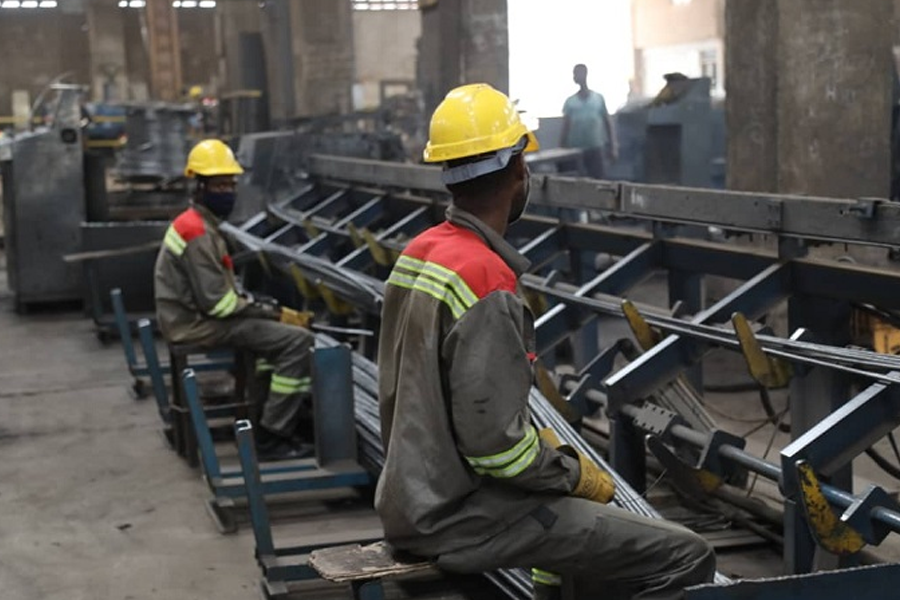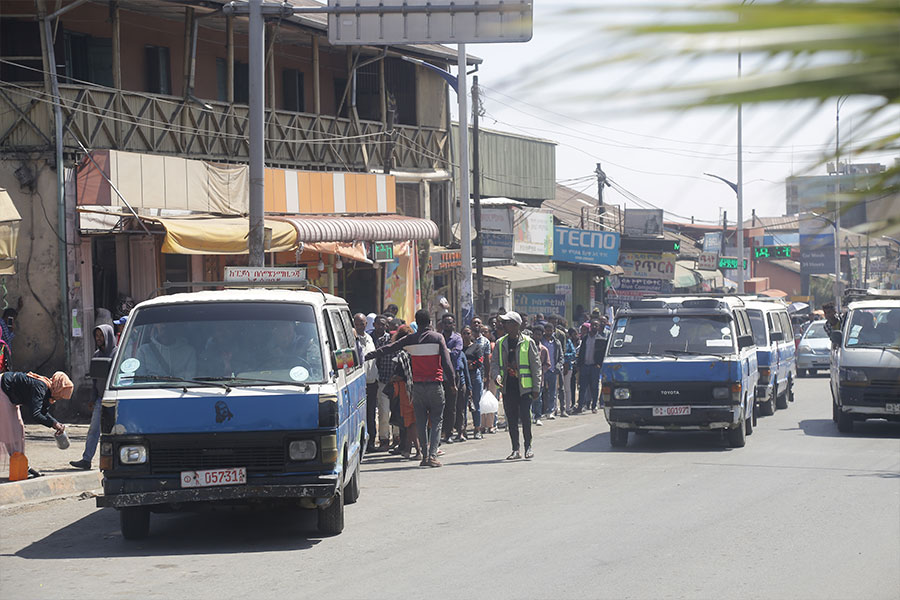
Radar |
An India-based consultancy firm has secured a considerable contract to study contractors’ capacity and consultants in the construction of road projects. Its finds will determine the causes and constraints contributing to project delays leading to cost runs five-time their initial estimates.
The Ethiopian Roads Administration (ERA) has awarded LEA Associates a 40.7 million Br bid over its contender, Ecorys Nederland BV. A subsidiary of the LEA Group headquartered in Canada, the firm specialising in research, consultancy and management services had offered 20 million Br more than the Indian company.
LEA Associates has been in business since 1993, with representation in 10 African countries, including Ethiopia. The contract the company takes will cover public road projects from inception through implementation and operation, according to Yetmgeta Asrat, deputy head of the ERA. Delays in road projects have been exuding public coffers. A study McKinsey & Company conducted reveals that most cost overruns in Ethiopia reach 160pc of the initial price estimate.
Two months ago, federal authorities rubber-stamped the disbursement of over 60 billion Br in adjustments for price escalations covering hundreds of contracts. The federal government funds 190 road projects.
Incorporated in 1990, Tilahun Abebe General Contractor has undertaken over 10 public road projects. The company’s managers expect a price adjustment for a 10Km road project near Dessie town in the Amhara Regional State awarded two years ago.
“We stopped work on the road due to right-of-way issues,” Tilahun Abebe, major shareholder and general manager, told Fortune.
Two other road projects his company undertakes face delays due to disputes over right-of-way issues and design revisions.
Although similar assessments have been conducted in the past, Yetmgeta says there is still a need for in-depth analysis to determine the problems. The Roads Administration has struck a deal with LEA Associates to jointly provide short- and long-term training to 50 firms in road projects, including consulting firms.
However, experts do not see a panacea in training. Kefelegne Hailu, a construction expert argues training offers little towards containing cost overruns and preventing delays.
“It could be possible to improve the capacity of contractors and consultants through training,” Abebe told Fortune. “The method falls short when it comes to solving the most pressing problems.”
Yetmgeta concedes. The problems the construction industry faces overwhelm the training ERA plans to provide attempts to address. However, ERA will have to wait for the outcome of the assessment to decide on its next move, according to Yetmgeta.
LEA Associates is committed to completing the job within a year.
The project is part of a road sector support program initiated a decade ago with an outlay of 385 million dollars. The World Bank covered nearly 85pc of the project launched to reduce travel time and cost along selected inter-regional corridors and ensure the sustainability of the federal road networks. Upgrading work on a gravel road connecting Neqemte in the Oromia with Bure in the Amhara regional states is incorporated into the program. The work has been delayed for over three months.
The road project was initially awarded to IITNL-Elsamex Neqemte-Bure JV – a joint venture between IL & FS Transportation Networks and Elsamex S.A., a Spanish firm – six years ago. Officials had set a completion date in 2019. However, the company abandoned the project with little progress and left the country after declaring bankruptcy.
In 2020, the ERA hired Chongqing International Construction Corporation (CCICC) to build 171Km of the road for 3.4 billion Br, scheduled to be completed next year. The Chinese company will be responsible for maintaining the road for five years after the compilation of the contract.
Industry insiders observe that bidding procedures are also culprits to project delays. The lowest bidder usually secures the contract, although the price offered is insufficient to cover costs, according to Samuel Alew, general manager of Aspire Aecom Architectural & Engineering Plc.
Incorporated 10 years ago with five million Birr capital, Aspire Aecom does design and supervision works. It is currently engaged in five public projects.
Samuel attributes “unfair and cutthroat competition” to delays and menaces in the construction industry.
Experts at the Ministry of Urban Development & Infrastructure (MoUDI) are preparing a guideline to determine fees for design and supervision works, to serve as a reference in public procurement processes. Nonetheless, others observe that the most significant causes for delays are within the control of neither contractors nor consultants.
Girma Habtemariam presides over the Construction Contractors Association, an industry lobby organisation, representing close to 2,500 contractors. He argues that inconsistency and variation in the bill of quantity are major factors behind delays and suspensions in federal road projects.
“Instability is another factor,” said Girma, who met with LEA Associates representatives last week.
Rising costs for construction inputs have been a major concern as well. Coupled with the foreign currency crunch, the skyrocketing input prices have pummeled the construction industry, contributing nearly a fifth of the country’s gross domestic product (GDP). Retail cement prices have tripled over the past couple of years, sitting near 2,000 Br a quintal as of this month.
PUBLISHED ON
Sep 03,2022 [ VOL
23 , NO
1166]

Radar |

Sunday with Eden | Nov 20,2021

Fortune News | Dec 05,2020

Fortune News | Sep 22,2024

Fortune News | Nov 13,2021

Radar | Nov 26,2022

Addis Fortune | Jul 03,2025

Fortune News | Jan 14,2023

Obituary | Mar 16,2024

Radar | Jan 12,2019

Dec 22 , 2024 . By TIZITA SHEWAFERAW
Charged with transforming colossal state-owned enterprises into modern and competitiv...

Aug 18 , 2024 . By AKSAH ITALO
Although predictable Yonas Zerihun's job in the ride-hailing service is not immune to...

Jul 28 , 2024 . By TIZITA SHEWAFERAW
Unhabitual, perhaps too many, Samuel Gebreyohannes, 38, used to occasionally enjoy a couple of beers at breakfast. However, he recently swit...

Jul 13 , 2024 . By AKSAH ITALO
Investors who rely on tractors, trucks, and field vehicles for commuting, transporting commodities, and f...

Oct 25 , 2025
The regulatory machinery is on overdrive. In only two years, no fewer than 35 new pro...

Oct 18 , 2025
The political establishment, notably the ruling party and its top brass, has become p...

Oct 11 , 2025
Ladislas Farago, a roving Associated Press (AP) correspondent, arrived in Ethiopia in...

Oct 4 , 2025
Eyob Tekalegn (PhD) had been in the Governor's chair for only weeks when, on Septembe...